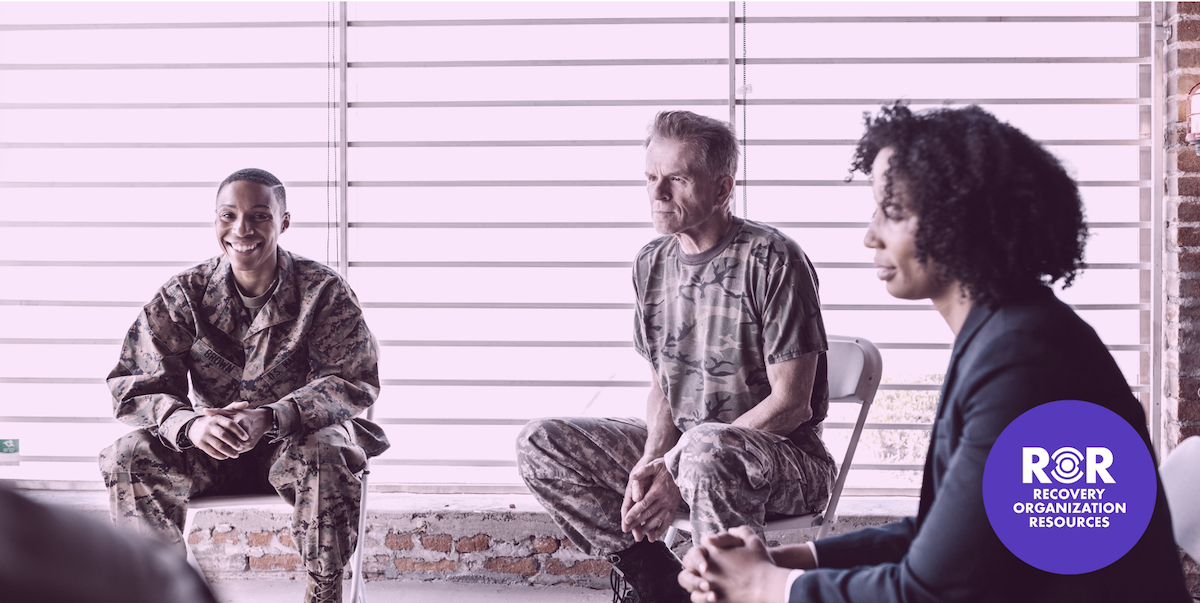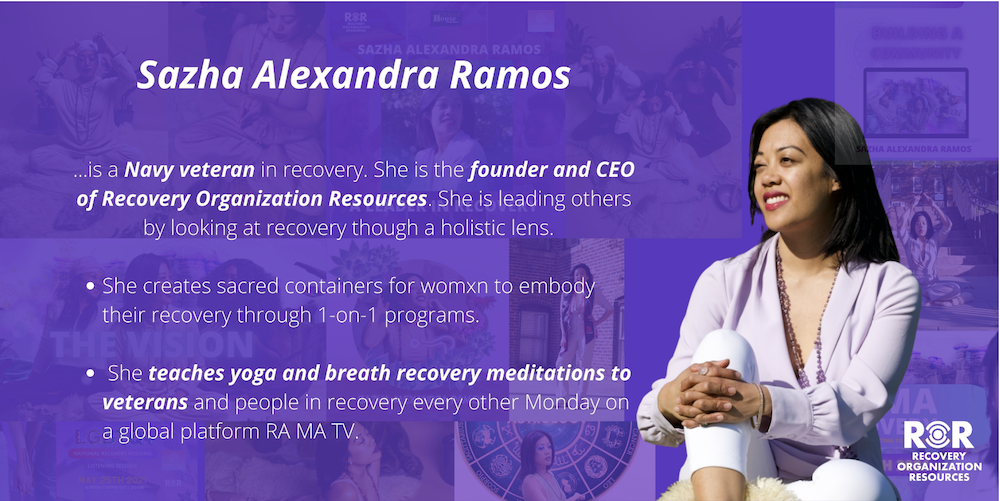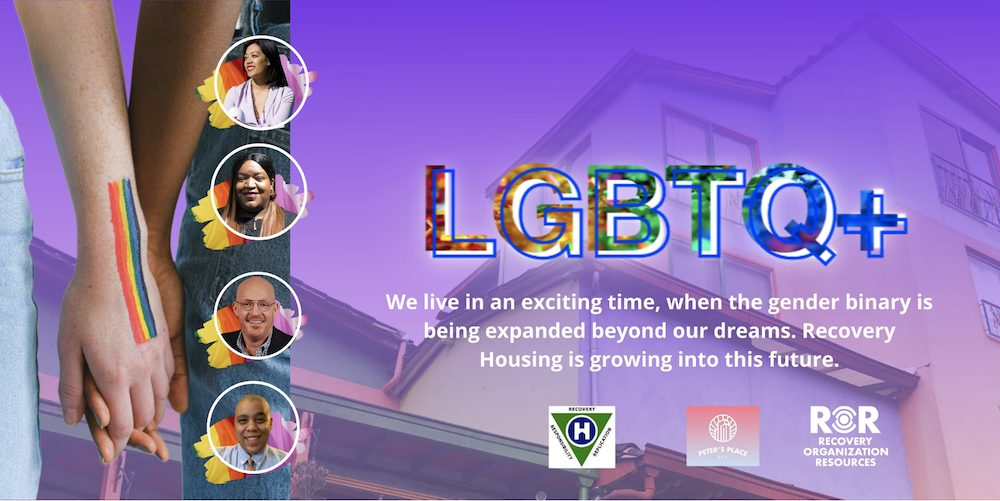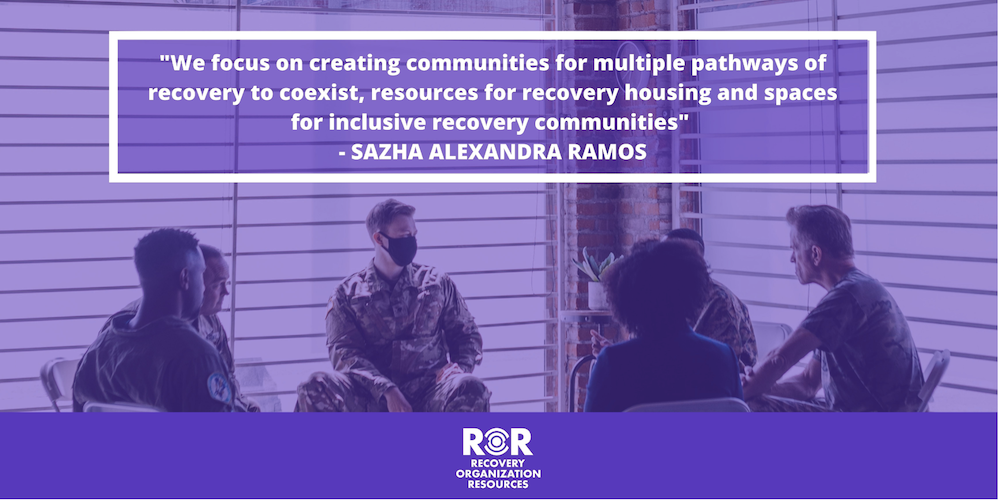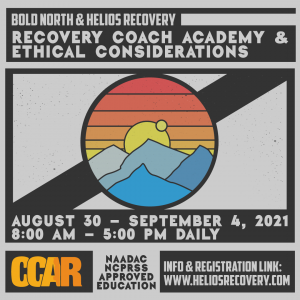I’ve always had a sense of duty, so joining the military was a decision that felt right, but also needed. The military was my first treatment. It was the answer to finding structure in my life.
The military gave me a sense of purpose and pride that I had not experienced before. It was a way for me to understand the physical and inner strength I had. For the most part, I really enjoyed my time in the service. I traveled the world, met amazing people, and learned an insane amount about technology and Navy culture.
A Wounded Warrior
My time in the service was cut short after an active duty accident with a sustained injury overseas. It left me with limited vision in my eyes, a traumatic brain injury and post-traumatic stress disorder. The medications prescribed also triggered a full-fledged opiate addiction. My last duty station was at the Wounded Warrior hospital in Bethesda, Maryland. This time felt hopeless. No longer was I doing my job in the Navy. I felt shame for not being a combat veteran. I felt isolated and experienced chronic pain.
My days were filled with appointments from neuro-doctors, therapists and eye doctors. I didn’t know what was happening but I was experiencing trauma, depression and paranoia. It was confusing and frustrating. I didn’t feel like myself. Eventually, I ended up in an inpatient rehab for several months.
Before entering rehab, my experience includes being sent away with no resources from the Veterans Administration. I went to get help and I was turned down by the Veterans Administration in New Jersey. I felt hopeless and physically sick as I was withdrawing from opioids. Thankfully, I had my sister, a registered nurse, aiding my process with relentless compassion. She was the person I asked for help. While the VA has since made improvements, many veterans 6 years later are telling the same story. They go to the VA and do not receive the care that they deserve and so desperately need.
A Message to my Fellow Veterans
Veterans have higher rates of substance use because we have been exposed to extreme stressors and conditions that other citizens do not undergo. Constant transitioning, combat, and military culture on top of stigma because of addiction are breeding grounds for behavioral and mental health. It’s not your fault if you’ve become addicted to your medication or the methods that help you cope. Going through the VA system is extremely challenging. I’m sorry that it’s that way. Ask for Help! Find a person like my sister, someone you can trust, a person that cares. You are stronger than you think, you deserve to live and there are people that can help you.
A New Start
Today I live a life of recovery, and a complete life of transformation. It’s an ongoing process that includes support for my mental health, a community, wellness methods and spiritual connection. The human body has the capacity to heal from addictions and trauma and its healing capabilities are available to those that seek it. As a part of my recovery, I continue to work on my recovery so I can serve others. It’s important to show people that recovery is a sacred act and initiation into a deeply gratifying life — one truly worth living.
My recovery journey has ebbed and flowed throughout the last 6 years as I have changed and grown. I started on suboxone to help me taper off opioids while in treatment and started attending 12 step meetings as they were widely available where I attended treatment. After joining a collegiate recovery house in Arizona, I began to explore more spirituality. A medicine woman taught me how to connect with the elements of the natural world. I listened to other people’s journeys in recovery and soaked in the vibes of the red rocks of Arizona. I am so grateful for my time in Arizona. It was completely different from my life on the East Coast and military service. In this place, I learned to slow down, trust the process and find gratitude for the smallest things.
Disrupting the Narrative of Addiction
At Recovery Organization Resources (ROR), we focus on creating communities for multiple pathways of recovery to coexist. These include resources for recovery housing and spaces for inclusive recovery communities. We disrupt the narrative of addiction by providing education on important topics.
LGBTQ+ Support:
On May 25th, we launched the first ever national LGBTQ+ Listening Session with over 90+ registrants from all over the country. Our next listening session is June 24 at 6pm. ROR is an ally to the LGBTQ+ community, as historically, recovery spaces were not equipped to support the LGBTQ+ community. Throughout the United States there has been a huge lack of recovery housing and even more so for the LGBTQ+ recovery community. Without supportive recovery housing how can anyone recover?
Meditations for Recovery:
We just completed a 90-day meditation to combat addictions. We had hundreds of views over the 90 days. For many in recovery, meditation has been a part of their daily recovery practices. Meditation is a way to observe the mind and connect with ourselves. If you have never observed your thoughts, this is a great way to explore your inner world. For some, this has been the way they find answers to questions that have difficulty answering. Try sitting quietly for just a few minutes a day, without judgement, and focusing on your breathe.
There are so many different types of meditation from guided, breath, walking and so much more. Something for everyone! Research on meditation shows an increase in the gray matter in the brain. The gray matter includes sensory perception like hearing, memory, emotions, speech, decision making, and self-control. Who wouldn’t want to strengthen these parts of our brain? The videos are still available on Instagram if you’d like to embark on the challenge.
Recovery Housing Interviews:
At ROR, we host individuals who operate recovery houses or have lived experience in a recovery house. Recovery houses are an essential piece to an individual’s recovery. It’s the next level of care after treatment and can be a transitioning step for those integrating from the criminal justice system or previously being houseless. There are many different types of recovery houses throughout the nation. When searching for a recovery house ask questions that fit your needs in recovery.
- What are the requirements while living in the recovery house?
- Are there certain meeting requirements?
- What is the cost of the recovery house?
- How many people live there?
- Do you help with food, bedding, toiletries, and etc?
- If you need a job or transportation ask them what opportunities are available? They may provide transportation to and from meetings or public transportation may be available. A quality recovery house knows the community and can point you to where a job may be available for you.
At Recovery Organization Resources, we hope that you feel welcomed to join our spaces. By connecting with others we can become more resourced and provide more resources to others. We’d love to hear about your recovery journey and how we can support you. Join our Recovery Housing Facebook group for more resources or join us on Instagram for daily inspiration.
If you are a veteran, service member or loved one who needs support navigating the substance use treatment or recovery please contact her directly at sazha@recoveryorganization.com.
The next Recovery Coach Academy and Ethical Considerations training will take place from August 30 – September 4, 2021. Feel free to reach out if you have any questions.



